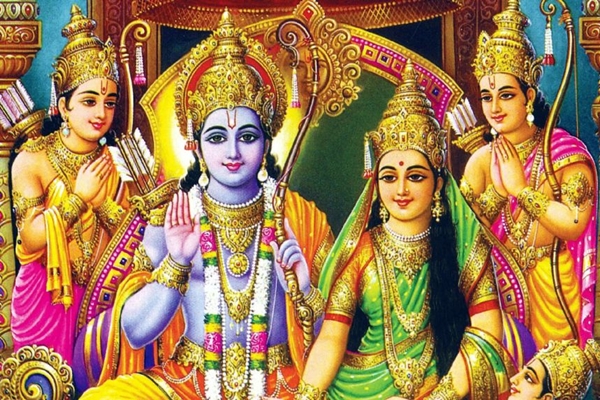
The Ramayana is one of the greatest epics of Hindu Mythology. Written by the Hindu sage Valmiki, the Ramayana is not just a story, but also an educational medium used by the ancient sages to espouse the importance of doing your dharma (duty) in relationships. The Ramayana depicts characters that we should aspire to be like, such as the ideal father, ideal son, ideal brother, ideal leader, ideal wife, etc. It also highlight true values which we must try to incorporate in our lives.
Let's take a look at 10 life lessons from the Ramayana that will help you lead a better life:
1. Victory of truth over evil
The first and the foremost teaching or message of this great epic is Good always wins over evil. The way Goddess Sita is lured by evil and finally Lord Rama wins her back by defeating wicked Ravana, the moral of the story is, it doesn’t matter how mighty or maleficent the evil is but noble values and good intentions will always win over it.

2. Unity in diversity
One of the most important teachings that come through is unity in diversity. Dashratha has three wives and four sons, all of them loved each other immensely and when life put them through tough times, their hearts were united even when they were apart physically. You should always stand by your family because when together a family can win over any difficulty. The fruits of togetherness give the power to sail the ship when the tide seems higher than the sky.
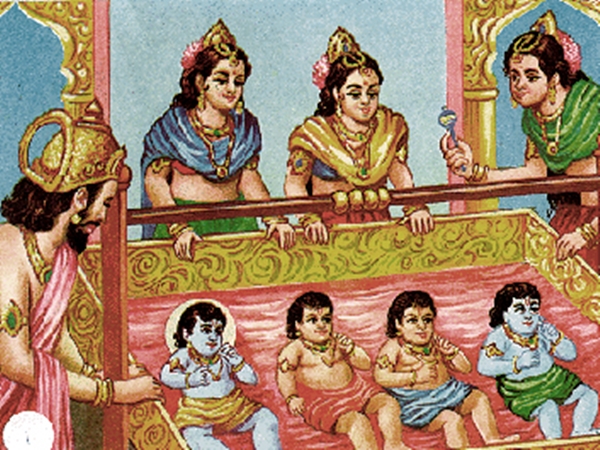
3. Value relationships over money
The brotherly love where greed, anger or treachery could never penetrate, is yet another example set in the Hindu epic. While Laxman followed Rama for fourteen years and supported him in both good and bad, Bharata (Queen Kaikeyi’s son) did not take up the kingdom even when he has the opportunity to take it. Instead, he sought for Lord Rama’s forgiveness and asked him to take up the kingdom as it belonged to Lord Rama rightfully. This positive tale of Brotherly love asks us in the modern world to forgo greed and material gain rather value relationships over money or property.

4. The value of a promise
Dashrath had granted Kaikeyi two boons when she had saved his life on the battlefield. The day before Dashrath was to retire and crown his eldest son Rama as king, Kaikeyi demanded that Dashrath grant her the boons she desired as promised. Her first desire was that Rama should be exiled to the forest for fourteen years, and the second, that her son, Bharat, be crowned King in his stead. Dashrath was naturally heartbroken at the prospect of having to send his son into exile for fourteen years, but for this noble hearted clan, honouring one’s word is the highest duty. Even when Dashrath began to falter at the prospect of actually following through on his promises due to his love for his first born and pleaded with Rama not to leave, Rama reminded his father of the value of a promise given and left Ayodhya to keep his father’s word. When Bharat begged Rama to return to Ayodhya, Rama once again reminded Bharat that he could not and would not dishonour his father by breaking the promise he had made to Kaikeyi.
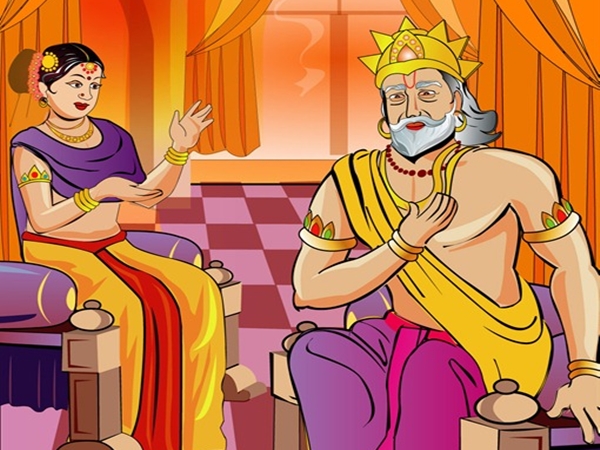
5. Love and respect for parents
Rama's insistence on keeping the promise made by his father also shows the deep love and devotion that he had for his parents. He willingly chose to spend 14 years in exile in a forest to protect his father’s much respected honour. Such was the regard he paid to his father. Dashrath too loved his child so deeply that when Rama left for the forest, Dashrath could not bear the thought of being away from his son for 14 years and breathed his last. This demonstrates the love and respect Rama had for his parents. He listened to every command his parents made, he honoured their promises and ensured that no one could accuse them of being unfair. He did not go against his parents’ wishes even though being passed over for the throne was unfair to the firstborn son of the ruler of a mighty kingdom. He obeyed his parents and is immortalised for doing so.
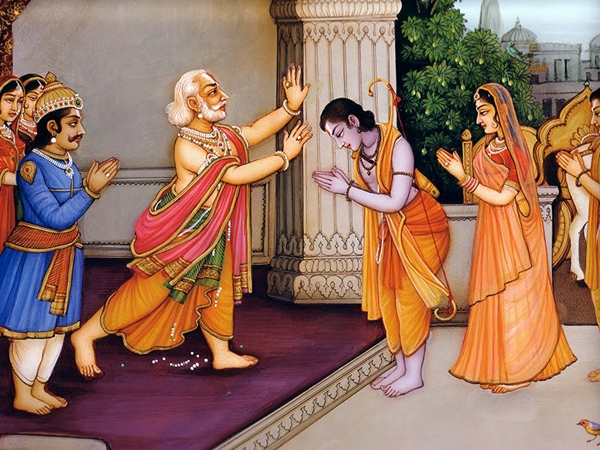
6. Importance of keeping good company
The epic also emphasizes on the relevance of good company. Queen Kaikeyi loved Rama more dearly than her own son Bharata. But due to the ill thoughts and negative feed from her handmaiden, Manthara, Kaikeyi was lured into committing the hideous act of asking for Rama’s fourteen years of exile. It is important that we maintain a healthy circle that motivates to be the best version of ourselves rather than negatively pushing us to a downfall.
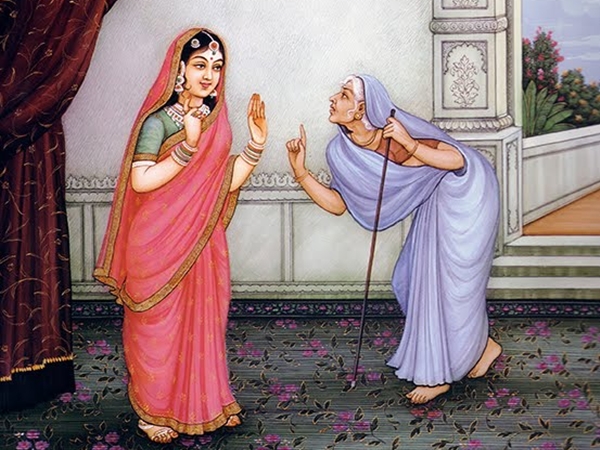
7. True devotion and surrender
Hanumanji, the monkey god stands as an image of irrevocable faith and love for the lord. His unwavering devotion and service to the Lord Rama and always being available when a friend needed him, works as teaching to the entire human race. It asks us to surrender ourselves in the lotus feet of the divine without any question or doubts. When we have an attitude of surrender and gratitude towards almighty, we can expect to attain nirvana and get rid of the circle of karma.
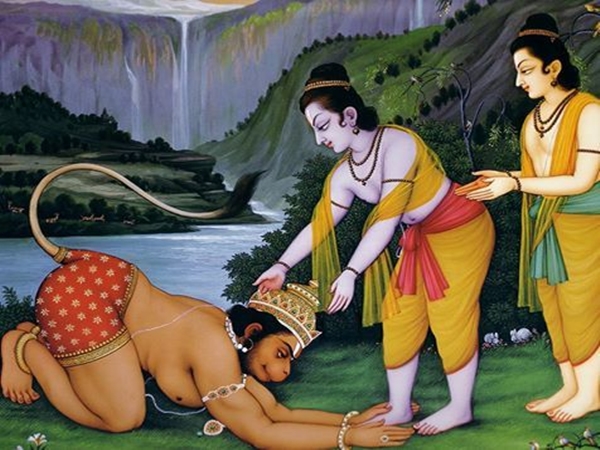
8. Treat everyone equally
Lord Rama treated everyone equally and that’s how he earned the love and respect among everyone. No matter if a person was younger or elder, poor or rich, he was the same person for everyone. Even when Sabri (the sage’s daughter) offered him the already tasted berry fruits he ate them without giving a second thought. He was always kind and humble to people. We should toe inhere this quality. We should always treat everyone with equality and should not discriminate on the basis of status, sex, age, or cast. We should treat animals equally as the true human being is the one who knows that everyone deserves an equal treatment.
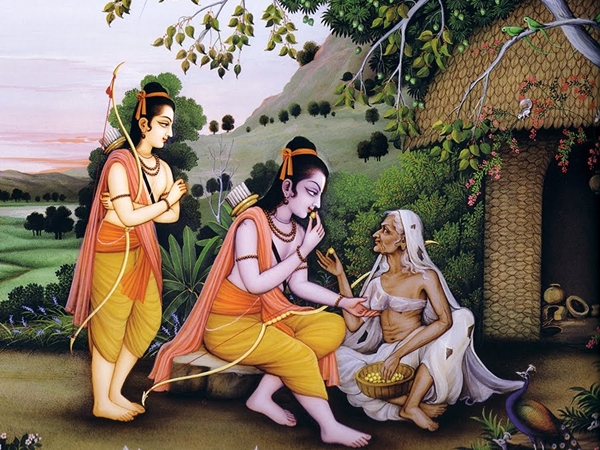
9. Forgiveness is a better attitude than revenge
Ravana’s abduction of Goddess Sita leads to his downfall, although he was also a well versed and a knowledgeable man. This shows us that in the fire of revenge we often burn our own house rather than bringing much harm to the other party. When Ravana goes to teach Lord Rama a lesson as Laxmana had insulted Supnakha (Ravana’s sister) then Ravana falls into his own trap of anger, treachery and vengeance. Therefore, we should always maintain an attitude of forgiveness rather than giving into the ills like revenge, ego and anger.
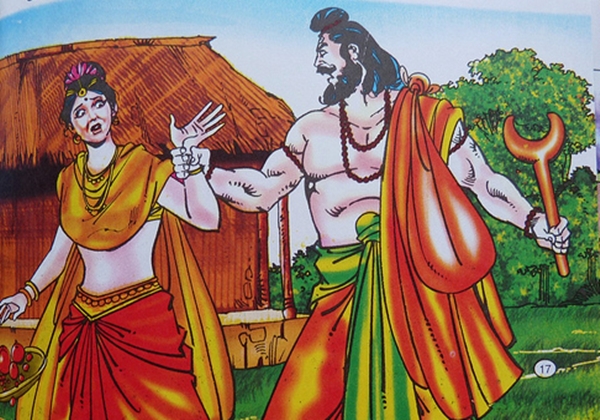
10. Love and compassion
Lastly but most important Lord Rama is an epitome of love, compassion and positivity and if we human beings try to embody even 10% of Lord Rama in our daily lives, we can expect to emerge as a true human being with a happy and satiated life. His peaceful and kind ways to complete surrender to his duties as a son, a husband, a brother and a king, Ramayana outlays the importance of human values and mutual love and respect.
